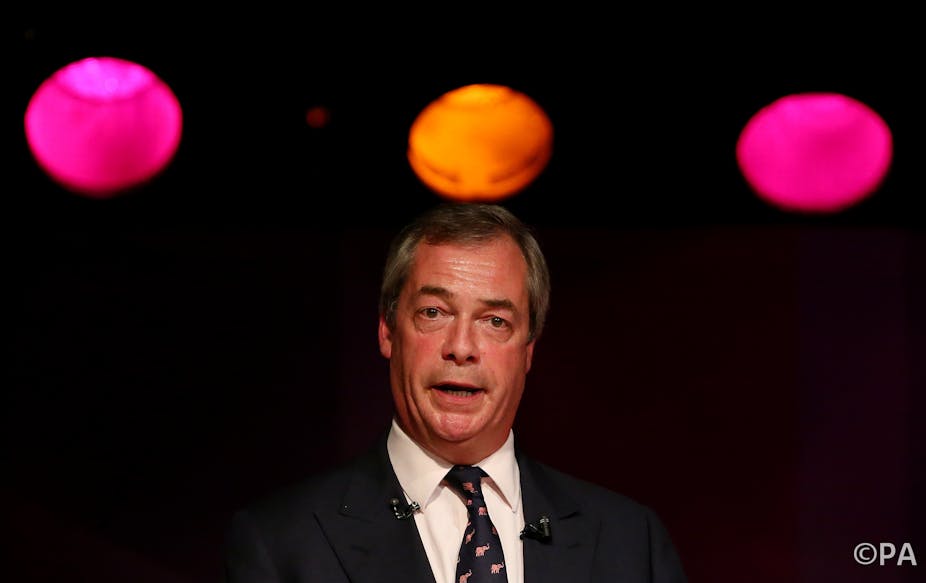In disarming and Python-esque style, Nigel Farage began UKIP’s recent election broadcast with the words: “And now for something completely different”. And here’s the evidence: a raft of environmental policies that fly in the face of most scientific advice on climate change, strongly driven by the party’s anti-EU philosophy.
The energy section of UKIP’s manifesto consists mainly of promises to abolish the major climate policies that successive UK governments have put in place over the past couple of decades: repeal of the 2008 Climate Change Act that provides for cutting UK emissions by 80% by 2050 through a series of steadily reducing carbon budgets; termination of assistance to new windfarms and solar energy, for example by ending feed-in tariffs for new schemes; withdrawal from the EU Emissions Trading Scheme; and abolition of green taxes and levies in order to reduce fuel bills. The justification for this approach is a claim that the Climate Change Act imposes an £18 billion annual cost on the UK economy. Compare this with the economic assessment of not acting on climate change in the Stern Review.
Instead UKIP proposes to encourage expansion of coal mining and the building of new coal-fired power stations, and to help win support for fracking by using some of the proceeds to finance a Sovereign Wealth Fund.
The inevitable consequence of abolishing climate policies and encouraging coal would be a huge increase in UK CO2 emissions. This is not mentioned in the text. In fact climate change itself isn’t mentioned. It is as if it isn’t happening despite the abundance of scientific evidence that it is.
To top it off, UKIP also promises to scrap the EU’s Large Combustion Plant Directive, which is designed to reduce other forms of air pollution from power stations, including sulphur dioxide and particulate matter, and to block the planned Medium Plant Combustion Directive. Again, this appears to wilfully ignore ongoing concerns about urban air quality in particular.
Most academic analysts would argue that these are dangerous policies, as major UK backtracking on climate policy would make achievement of a global climate agreement much more difficult: if the UK won’t reduce its emissions, some other governments may say, why should we? The result would be disastrous if global temperatures climbed past the two degree threshold and the world moved into a new era of major climate disruption.
The Conversation’s Manifesto Check deploys academic expertise to scrutinise the parties’ plans.

